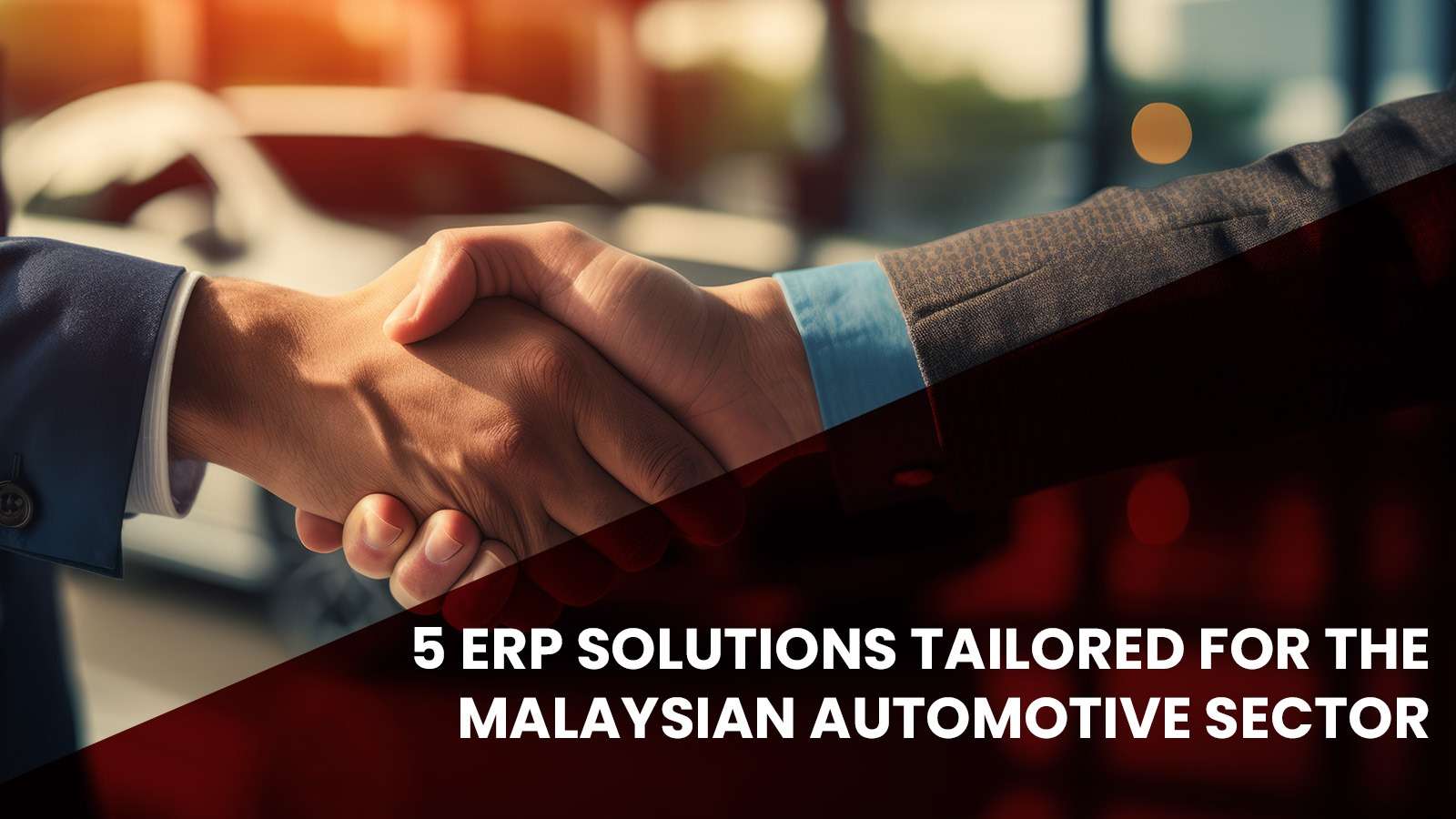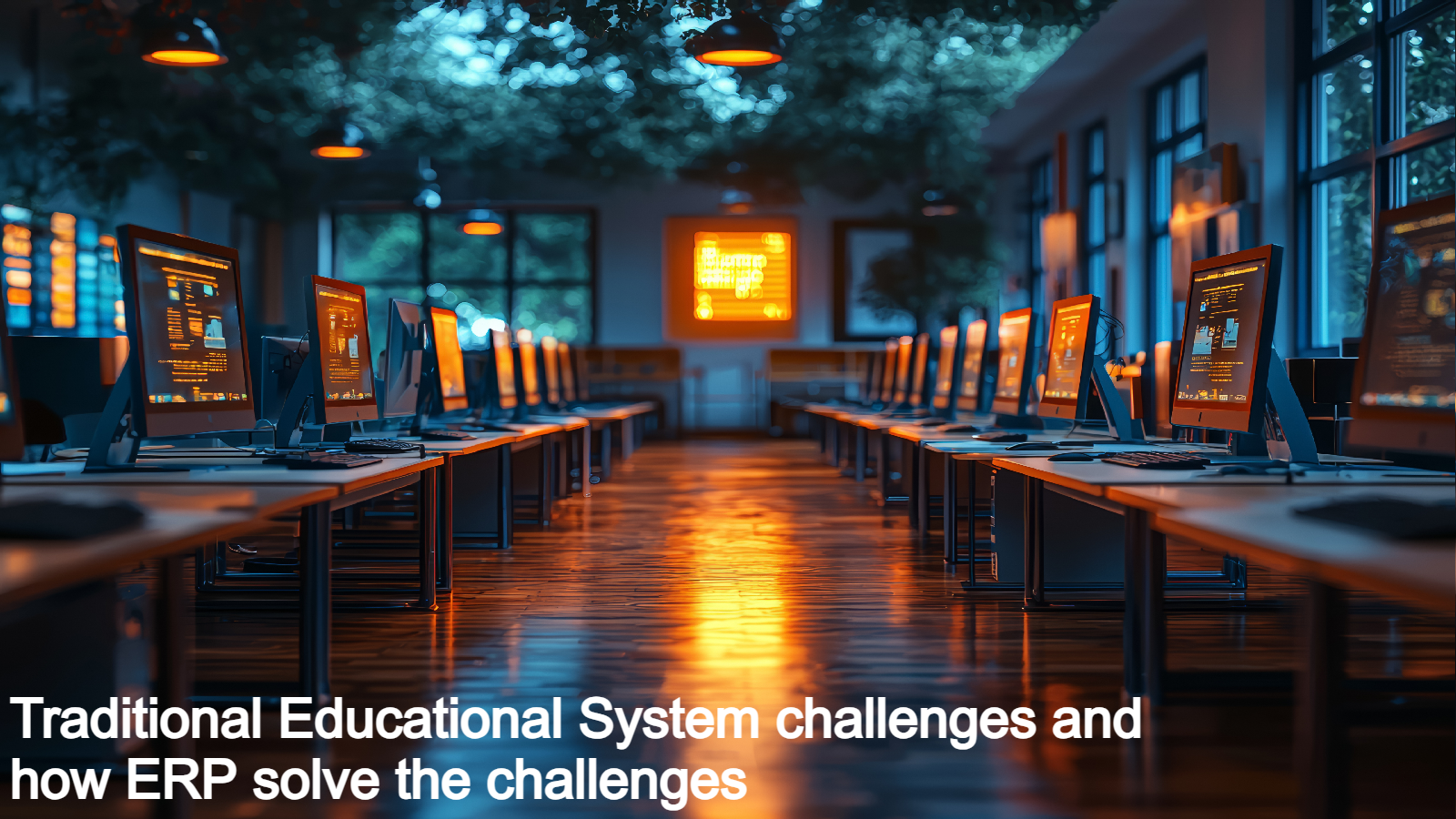Malaysian Automotive ERP
The Malaysian automotive sector is undergoing a significant transformation, especially in today’s dynamic business environment. To stay competitive and meet the evolving industry demands, automotive companies are turning to ERP (Enterprise Resource Planning) solutions tailored specifically to their needs. These ERP solutions empower businesses to streamline operations, improve efficiency, and enhance decision-making processes.
Understanding ERP in the Malaysian Automotive Sector
What is ERP?
ERP systems are comprehensive software solutions that integrate various business functions into a single platform, enabling efficient data management and process automation. In the context of the Malaysian automotive sector, ERP systems are customized to address the unique challenges and opportunities the industry presents.
Benefits of ERP in the Automotive Sector
- Improved Supply Chain Management: ERP systems provide automotive businesses with a centralized platform for managing their supply chains. This includes everything from procurement and inventory management to production planning and logistics. Doing so, ERP systems help businesses identify and resolve bottlenecks, optimize inventory levels, and reduce lead times.
- Enhanced Collaboration and Communication: ERP systems break down silos between different departments within an automotive business. This allows for better collaboration and communication, which can lead to improved decision-making and faster problem-solving. ERP systems also provide real-time visibility into business operations, which can help businesses identify and respond to issues more quickly.
- Reduced Costs: ERP systems help automotive businesses reduce costs in many areas, including inventory, labor, and IT. By automating tasks and streamlining processes, ERP systems help businesses eliminate errors and improve efficiency.
- Improved Quality Control: ERP systems help automotive businesses improve quality control by tracking the movement of materials and components throughout the production process. This allows businesses to identify and rectify problems early on, which can help to prevent costly defects. Additionally, ERP systems help businesses comply with industry quality standards.
- Enhanced Customer Satisfaction: ERP systems help automotive businesses improve customer satisfaction by providing real-time visibility into customer orders and shipments. This allows businesses to provide customers with accurate and up-to-date information, which helps build trust and loyalty. Additionally, ERP systems help businesses identify and resolve customer issues quickly and efficiently.
- Compliance with Industry Regulations: The automotive industry is subject to several regulations, both at the national and international levels. ERP systems help businesses comply with these regulations by providing them with the tools and information they need to track and manage their compliance activities.
The Importance of ERP in the Automotive Sector
In a highly competitive market like Malaysia’s automotive industry, efficient management of resources and data is paramount. ERP solutions provide a centralized platform for managing operations, from supply chain and inventory management to production scheduling and customer relationship management.
Here are some specific examples of how ERP can be used in the automotive industry:
Production planning and scheduling: ERP can be used to plan and schedule production so that the right parts are made at the right time. This can help to reduce inventory costs and improve lead times.
Customer relationship management (CRM): ERP can be used to track customer interactions and sales data. This can help businesses to better understand their customers and improve customer service.
Financial reporting: ERP can be used to generate financial reports that can be used to make informed business decisions.
Let us now look into the five ERP solutions tailored for the Malaysian automotive sector:
- AutoPro ERP
AutoPro ERP is a cutting-edge solution designed explicitly for automotive manufacturers and suppliers in Malaysia. It offers a wide range of features, including:
Inventory control and demand forecasting.
Production scheduling and quality control.
Sales and order management.
Financial management and reporting.
With its user-friendly interface and robust reporting capabilities, AutoPro ERP helps automotive businesses improve efficiency and customer satisfaction.
- CarParts360
CarParts360 is an ERP solution that specializes in managing automotive spare parts and accessories. In the Malaysian automotive sector, maintaining an optimal inventory of parts is crucial to meet customer demands. CarParts360 offers:
Parts tracking and inventory management.
Supplier and procurement management.
Warranty and returns processing.
eCommerce integration for online sales.
This solution streamlines the supply chain for automotive parts, ensuring timely availability and reducing overhead costs.
- AutoCRM
Customer relationship management (CRM) is an integral aspect of success in the automotive sector. AutoCRM is tailored to address the unique needs of automotive dealerships and service centers. Key features include:
Lead and opportunity management.
Service appointment scheduling.
Customer communication and feedback management.
Sales performance analytics.
AutoCRM helps automotive businesses in Malaysia build strong, lasting relationships with their customers.
- AutoTrack Logistics
Efficient logistics management is vital in the Malaysian automotive sector. AutoTrack Logistics offers a comprehensive solution for supply chain and logistics management, covering:
Route optimization and tracking.
Warehouse management.
Order processing and fulfillment.
Supplier collaboration.
By optimizing logistics operations, automotive companies can reduce costs and enhance delivery reliability.
- Elvis ERP
Elvis ERP is another prominent ERP solution that caters to the Malaysian automotive sector. With features designed for both manufacturers and service providers, Elvis ERP offers:
Logistics Management.
Customer Relationship Management.
Inventory Control Automation.
Employee Management.
Elvis ERP is known for its scalability and customization, making it a popular choice among diverse businesses in the Malaysian automotive industry.
Conclusion
The Malaysian automotive sector is experiencing rapid change, and ERP solutions have become essential tools for companies looking to thrive in this environment. These ERP solutions, each tailored to specific needs within the industry, offer automotive businesses in Malaysia the opportunity to optimize their operations, enhance customer service, and stay ahead of the competition.
Frequently Asked Questions (FAQs)
- What is the Malaysian automotive sector’s current status?
The Malaysian automotive sector is evolving, with a strong focus on electric vehicles, sustainability, and digital transformation.
- How can ERP solutions benefit automotive manufacturers?
ERP solutions help automotive manufacturers streamline operations, reduce costs, and improve overall efficiency.
- Are these ERP solutions suitable for both large and small automotive businesses?
Yes, these ERP solutions can be customized to meet the unique needs of both large automotive manufacturers and smaller service providers.
- How can businesses in the automotive sector choose the right ERP solution for their specific needs?
Selecting the right ERP solution involves evaluating the company’s size, industry focus, and specific requirements.
- What is the future outlook for the Malaysian automotive sector?
The future of the Malaysian automotive sector looks promising, with a focus on innovation, sustainability, and digital transformation.








